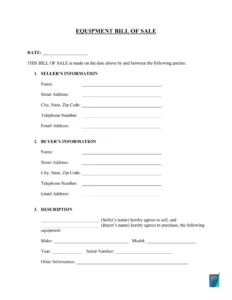In civil cases where settlement negotiations are underway, a tolling agreement may extend the time limit for resolving disputes without resorting to litigation.
A tolling agreement: what is it? This tutorial covers what should be in a tolling agreement, why you would want to design one, and how they operate.
A Tolling Agreement: What Is It?
A tolling agreement is an extrajudicial agreement between two parties to extend the statute of limitations for a predetermined period. Tolling agreements are tailor-made for each scenario because they are contractual.
What Does Legal Tolling Mean?
Tolling in legalese means to halt the application of a statute of limitations. Either a court order or an agreement between the parties can be carried out. Tolling is typically connected to two scenarios:
- when a lawsuit is parties are not given enough notice
- while the accused is traveling abroad.
In the first instance, the plaintiff is required to notify the defendant of the legal action. Suppose the defendant is not present or is evading service. Then, until the defendant is duly served, the statute of limitations will be tolled.
If the defendant is abroad and cannot be served, the statute of limitations will be tolled until the defendant returns to the country. Both parties must consent to the terms of a tolling agreement for it to be enforceable. For example, the agreement typically outlines the party responsible for administering the statute of limitations and the duration of the suspension.
Written or verbal agreements are also appropriate. To prevent future disputes or contract violations, it is preferable to have the agreement in writing.
What Makes a Tolling Agreement Necessary?
When both sides want more time to conclude, tolling agreements are relevant. In civil cases, settlements outside of court are feasible if the plaintiff and defendant reach a mutually agreeable resolution. A car accident claim settles when the plaintiff agrees to the defendant’s payment of a specific amount. Settlements are frequently better for all sides because they eliminate any doubt regarding a court’s ruling.
But arriving at a decision isn’t always easy. If negotiations are proceeding and the plaintiff wishes to avoid losing the chance to file a lawsuit because the statute of limitations is about to run out, the parties may decide to sign a tolling agreement. Since the agreement specifies a new deadline that applies to the plaintiff’s claim, the plaintiff is not required to file a lawsuit under the statute of limitations once it is signed.
In Which Kind of Cases Is a Tolling Agreement Applicable?
A tolling agreement may be used in any kind of civil action where one plaintiff files a lawsuit against another defendant. These situations may fall into any of the following categories:
- Claims for personal injuries
- Claims involving slips and falls
- Claims for auto accidents
- Claims of medical malpractice
- Claims for breach of contract
The key is the mutual agreement between the plaintiff and defendant regarding the temporary suspension of the statute of limitations. A plaintiff cannot choose to wait longer than necessary to initiate a case, or else the claim may be considered time-barred.
What Your Tolling Agreement Should Contain
Generally speaking, a tolling agreement ought to include particulars regarding the following matters:
The people who signed the contract. Identifying them is necessary. The plaintiff must sign the agreement with all potential defendants to pursue claims against some parties responsible for their losses.
The civil case arose from the event. It is imperative that the tolling agreement explicitly specifies the incident that gives rise to the claim, be it an accident, a breach of contract, or another matter.
the day on which the tolling agreement goes into force.
The duration of the tolling. The agreement specifies that the plaintiff may proceed at this point. By defining the length of time the statute of limitations will not run, it establishes the new deadline.
clauses stating that the parties have not entered into any further commitments or admissions of obligation other than to pause the statute of limitations
Generally speaking, it is not a good idea to try writing a tolling agreement for yourself. This is because drafting this kind of legally binding agreement necessitates expertise beyond simply knowing what a tolling agreement is. An expert lawyer can assist in drafting an agreement that upholds your rights and is enforceable in court.
Advantages of a Tolling Contract
A tolling arrangement has several important advantages:
It may help parties avoid the stress and uncertainty associated with going to court by giving them additional time to work out a resolution.
It expressly establishes a deadline for filing a lawsuit. This can be helpful if it’s unclear when the statute of limitations started to run.
For example, in a medical malpractice case, this can happen if the plaintiff didn’t find out about their injuries until several months or even years after the doctor’s negligence.
It gives the potential parties to a lawsuit the authority to determine when the case will proceed, rather than requiring them to abide by legislation that applies to all comparable claims.
Has a Tolling Agreement Got You Covered?
If you would like additional time to pursue a prospective civil case or to reach a settlement before court proceedings begin, you can sign a tolling agreement.
Always get legal advice before making this decision, since it can help determine whether signing an agreement makes sense in your particular circumstances.
FAQs:
How much time does a tolling agreement have?
The tolling period may be perpetual or have a predetermined end date. Upon course setting, both parties must concur on the termination date of the suspension. The arrangement usually tolls the lawsuit for three or ninety days.
The defendant may assert that the statute of limitations has run out if the suspension ends and the plaintiff has not yet submitted a claim. If the suspension is indefinite, the parties will need to periodically rewrite the agreement in order to maintain its validity.
Why would you sign a tolling contract?
Tolling agreements are between plaintiffs and defendants when potential litigants wish to extend the time limit within which a plaintiff has to bring a civil case or risk losing the chance to do so. In addition to defendants benefiting from maybe avoiding litigation if they can reach an amicable agreement with the plaintiff, plaintiffs gain from not having to file a case before they are ready.
What does the legal definition of tolling mean?
Tolling is the act of halting a time interval. The phrase frequently refers to a tolling arrangement that suspends the statute of limitations. Generally, the statute of limitations sets a deadline for filing a lawsuit. A tolling agreement may halt during this period, providing the parties with an additional opportunity to address their differences before a new, mutually agreed-upon date.



